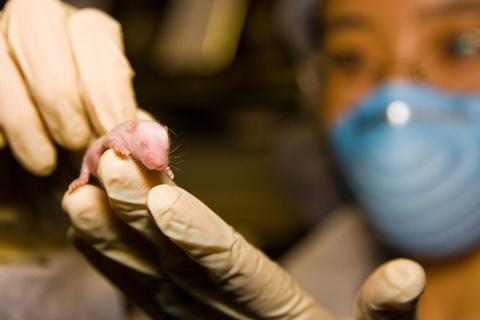University of Bristol symposium looks at humane animal research

The University of Bristol held its first Animal Welfare and Research 3Rs symposium on April 27th (University of Bristol, 2017).
The principles of 3Rs, developed over fifty years ago as a framework for humane animal research, are embedded in European and UK law. When researchers at the University of Bristol use animals, they always comply with the 3Rs, aiming to replace them where possible with alternatives, to reduce the number of animals used, and to refine their experiments to minimise any adverse effects.
At the event, the winners of the University of Bristol’s first 3Rs competition were announced and presented by Professor John Iredale, Pro Vice-Chancellor for Health. The judging panel also included the University of Bristol’s Veterinary Officer, a Named Animal Care and Welfare Officer and a representative from the UK’s National Centre for 3Rs.
The research project that won first prize has developed a refined method for producing aortic aneurysms in mice. An aortic aneurysm is a bulge in a section of the aorta. If the bulge ruptures it can cause sudden death. The research team has also developed a new human aortic aneurysm model in the laboratory, potentially replacing the need for animal models, using arteries taken from the discarded umbilical cord of newly born babies.
The second prize was awarded to a research team who have developed a method for giving oral drugs using solutions that mice and rats both like, which avoids the need for restraint and reduces stress in the animals. The research team found that liquid foods such as condensed milk, milkshakes and fruit puree baby food are good solutions to use for giving a wide range of drugs.
The third prize was awarded to a research team who have developed photographic techniques that can be used in conscious animals. This new technique has revolutionised preclinical eye research and has markedly reduced the number of animals needed for research studies.
Dr Nicola Watts, Director of the Services Unit, said “All our scientists who work with laboratory animals at the University are committed to the 3Rs and events like this symposium enable the sharing of good practice.”
John Iredale said “Animal research plays an essential role in advancing science and treating many major health problems. Despite the advances in non-animal methods it is still essential to use animals where no viable alternatives exist.”








